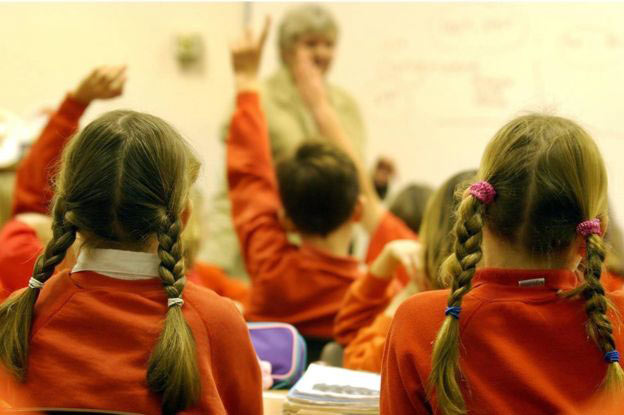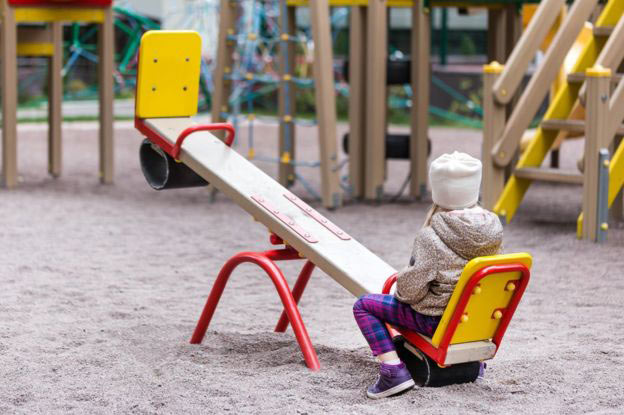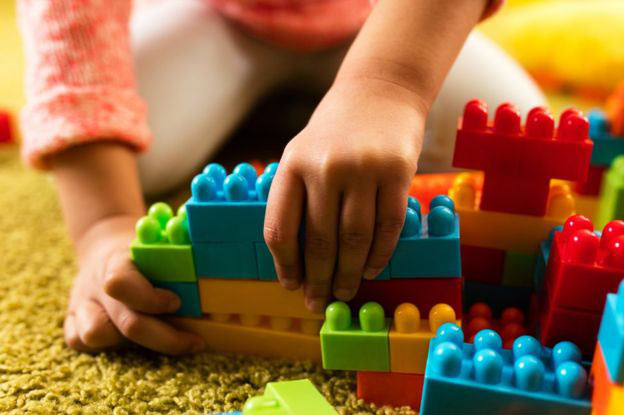It is normal for parents to argue, but the way these disagreements affect children varies greatly. What can parents and carers do to limit the harm caused by their rows?
What happens at home really does affect children's long-term mental health and development.
But it is not only the relationship between the parent and child that is important.
How parents get on with each other also plays a big role in a child's wellbeing, with the potential to affect everything from mental health to academic success and future relationships.
In most cases, arguments will have little or no negative effects for children.
But when parents shout and are angry with each other, when they consistently withdraw or give each other the "silent treatment", problems can sometimes arise.
UK and international research conducted over several decades through observations in the home, long-term follow up work and experimental studies, suggests that from as young as six months, children exposed to conflict may have increased heart rates and stress hormone responses.
Infants, children and adolescents can show signs of disrupted early brain development, sleep disturbance, anxiety, depression, conduct disorder and other serious problems as a result of living with severe or chronic inter-parental conflict.
Similar effects are also seen in children who are exposed to ongoing but less intense conflict, compared with children whose parents constructively negotiate or resolve conflicts.
Nature or nurture?
The impact on children is not always as might be expected.
For example, divorce - and parents deciding to live apart - has often been seen as having a particularly damaging and lasting effect on many children.
But in some cases, it is now thought that it could be the arguments that take place between parents before, during and after a separation that do the damage, rather than the break-up itself.
Similarly, it has often been assumed that genetics play a defining role in how children respond to conflict.
And it is true that "nature" is central to a child's mental health - playing a part in problems from anxiety, to depression and psychosis.
But the home environment and the "nurture" they receive there can also be very significant.
Increasingly, it is thought that underlying genetic risks for poor mental health can be made worse - or better - by family life.
The quality of the relationship between parents appears to be central, whether or not they are living together, or if the children are genetically related to the parents or not - for example, if they were conceived using donor eggs or sperm, or adopted.
Rows about children
What does all of this mean for parents?
First, it is important to recognise that it is perfectly normal for parents and carers to argue or disagree with each other.
However, when parents engage in conflicts with each other that are frequent, intense and not resolved, children do less well.
Even more so if the row is about children, for example where children blame themselves or feel at fault for the arguments.
These negative effects can include sleep disturbance and disrupted early brain development for infants, anxiety and conduct problems for primary school children, and depression and academic problems and other serious issues, such as self-harm, for older children and adolescents.
For decades, we have known that domestic abuse and violence can be particularly damaging for the children involved.
But parents don't even need to display volatile or aggressive behaviour towards one another for damage to be done.
Where they become withdrawn, or express low levels of warmth for each other, children's emotional, behavioural and social development is also put at risk.
The problems don't end there.
Not only are children affected in their own lives, but research shows that bad relationships can pass from one generation to the next.
It is a cycle that needs to be broken if we want positive and happy lives for today's generation of children, and the next generation of parents and families.
Arguing in 'private'
But there are factors which can reduce the harm caused.
From the age of about two - and possibly from an even younger age - research tells us that children are astute observers of their parents' behaviour.
They often notice arguments - even when parents think their children don't, or believe they have protected them by arguing in "private".
What matters is how children interpret and understand the causes and potential consequences of conflicts.
Based on their past experience, children decide whether they think conflicts are likely to escalate, potentially involve them, or could even pose a risk to family stability - a particular concern for some young children.
They may also worry about the possibility of their relationship with their parents worsening as a result.
Research suggests that boys and girls may also respond differently, with girls at greater risk of emotional problems, and boys at greater risk of behavioural problems.
Often, policies aimed at improving mental health among the young have focussed on supporting the children themselves, or in directly supporting parenting.
But it could be that supporting the relationship between parents could also make a big difference to children in the short term, as well as better equipping them to form their own healthy relationships with others in the future.
Where children have supportive relationships with relatives, siblings, other adults (eg teachers) and friends, these are important for children's long-term healthy development. What happens at home can significantly influence these
Five top tips for parents
It is natural for parents to feel concerned about the impact their arguments may have on their children.
But it is normal to argue or disagree sometimes, and in fact children respond well when parents explain or resolve - in an appropriate way - what an argument was about.
Indeed, where parents successfully resolve arguments, children can learn important positive lessons which can help them navigate their own emotions and relationships beyond the family circle.
Helping parents understand how their relationships affect children's development sets the stage for healthy children today - and healthy families in the future.
父母的关系,对孩子的身心健康有很大的影响,甚至还有可能会影响到他们的精神健康,学业表现,以及未来的人际关系。
虽然大多数情况下,父母之间的争论对孩子的负面影响还算小,但当父母情绪失控,开始大吵大闹,或者是长期进行冷战,那么对孩子带来的负面影响就会升级。
国际上有很多研究者专门对此进行了研究。
他们发现,就算是6个月大的婴儿,当父母在他们旁边大吵时,他们的心跳也会加速,体内的压力荷尔蒙也会开始释放。
父母长期争吵,根据孩子的年龄不同,也会产生不同的影响。
对婴儿来说,这可能会让他们产生睡眠障碍,影响到早期的大脑发育。
对上小学的孩子来说,这可能会让他们感觉抑郁,从而影响到他们的学习。
对更大一点的孩子来说,这可能会导致他们自残。
很多时候,父母之间的关系已经破裂了,但是担心离婚会给孩子带来阴影,就一直强撑着冷漠的夫妻关系…
不过,现在一些研究者认为,有时候,离婚给孩子带来的阴影,不是离婚本身,而是离婚前后,以及离婚过程中,父母无休止得争吵伤害了孩子。
过去,也有很多人认为,基因才是决定孩子是否会出现焦虑,抑郁,精神障碍等问题的关键,这当然是有道理的,不过,其实家庭环境的影响也非常大。如果孩子本身带有精神健康问题的潜在基因。那么,不管孩子是不是父母亲生的,良好的家庭关系会改善他的精神状态,恶劣的家庭关系则会恶化他的精神问题。
那么,父母究竟该怎么做呢?
首先,父母需要知道,在家庭生活中,不赞成彼此,或者争辩都是正常的。
只是,如果这种冲突太频繁,太激烈,而且无法得到解决,那往往就会影响到孩子。尤其是当争论的焦点是关于孩子的时候,他们心里可能就会感觉,这一切的争吵都是自己的错。
总之,如果父母之间关系恶劣,孩子的情感,以及将来的人际交往都会受到影响。更可怕的是,这种恶劣的家庭关系是会代代相传,孩子生活在一个充满争吵,冷漠的家庭环境中,他将来自己组建的家庭,可能也会变成这样。
研究者发现,其实孩子在2岁,甚至更小的时候,就会非常敏感得观察到父母的争吵,然后根据过去的经验,他们会判断争吵会不会升级,会不会影响到自己,会不会影响到自己家的稳定性,会不会影响到自己和父母的关系。同时,男孩和女孩在面对父母争吵时的反应是不同的,女孩可能更多的是会产生情感障碍,而男孩可能会产生行为障碍。
父母之间的关系,还会影响到孩子和亲戚,兄弟姐妹,朋友,其他成人之间的关系,而这些关系都会对一个孩子长期的身心健康产生重要影响。
最后,专家给出了几点建议:
家长之间有争论是很正常的事情
在争论的过程中,如果家长能心平气和得跟对方解释,最后解决冲突。这对孩子是有积极影响的。
孩子也可以从父母解决争论的过程中,学会如何控制自己的情绪。
将来,这种积极的影响,会让他们在学校,在社会都有更积极的心态。





